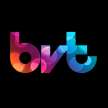WHO AM I 🤔
1.Reflect on your personal values and beliefs. 2.Explore your interests and passions. 3.Look at your past experiences and accomplishments. 4.Consider what makes you unique. 5.Seek feedback from others. 6.Set goals and pursue activities that align with your interests. 7.Continuously reflect on and evaluate your sense of self.

1.Reflect on your personal values and beliefs.
Reflecting on your personal values and beliefs can help you understand what is important to you and what guides your actions and decisions. Some examples of values include honesty, integrity, family, and education. Beliefs can include religious or spiritual beliefs, political beliefs, and beliefs about what is right and wrong. To reflect on your values and beliefs, you can take some time to sit and think about what is important to you, and why. You can also consider how your values and beliefs have changed over time and what experiences have shaped them. Additionally, you can consider how your values and beliefs align with your actions and decisions.
2.Explore your interests and passions
Exploring your interests and passions can help you understand what you enjoy doing and what you are naturally good at. Your interests and passions can be in many areas such as:
Hobbies: such as reading, writing, playing a musical instrument, photography, cooking, etc.
Career: such as business, technology, education, healthcare, etc.
Social causes: such as environmentalism, human rights, community service, etc.
To explore your interests and passions, you can try new things and see what resonates with you. You can also think back to what you enjoyed doing as a child or teenager, as these activities often reveal what you are truly passionate about. You can also consider what you are naturally good at, and what you find easy to do. Joining clubs, groups, or organizations that align with your interests and passions can also help you explore them further and connect with like-minded individuals. Additionally, you can set yourself small goals to achieve in the areas of your interest and passion and see how it feels when you reach them.
3.Look at your past experiences and accomplishments.
Looking at your past experiences and accomplishments can help you understand what you have achieved and what you are capable of. Your past experiences include not only your professional achievements but also personal, educational and other life experiences that have had an impact on you. Some examples of past experiences and accomplishments are:
Education: such as degrees, certifications, and courses completed
Professional: such as promotions, work projects, and publications
Personal: such as travel, volunteer work, and overcoming personal challenges
To look at your past experiences and accomplishments, you can make a list of all the things you have done and achieved so far. You can also think back to specific moments and events that stand out as particularly meaningful or impactful. Reflect on what you learned from those experiences and how they have shaped you. Additionally, you can consider how your past experiences and accomplishments align with your current goals and aspirations. It can also be helpful to look at the skills, strengths, and knowledge you have developed through your experiences and accomplishments, and how you can use them in the future.
4.Consider what makes you unique.
Considering what makes you unique can help you understand what sets you apart from others and what makes you special. Some examples of what can make you unique are:
Personality: such as your sense of humor, your perspective, or your communication style
Skills: such as a particular talent or ability you possess
Experiences: such as a unique background or life experiences that have shaped you
Knowledge: such as an area of expertise or a unique interest or passion
To consider what makes you unique, you can think about what you bring to the table that others don't. You can also consider how your unique characteristics have helped you in the past and how they can help you in the future. Additionally, you can think about the feedback or comments you have received from others about what makes you unique.
It's important to remember that everyone is unique in their own way, and you should embrace your individuality and be proud of it.
5.Seek feedback from others.
Seeking feedback from others can provide valuable insight into how others perceive you and what you can improve. Feedback can come from a variety of sources such as:
Friends and family
Colleagues and supervisors
Mentors and coaches
Customers and clients
To seek feedback from others, you can ask them directly for their thoughts and opinions. You can also set up a formal or informal feedback session or survey. It's important to be open-minded and non-defensive when receiving feedback, and to consider the perspectives of others. Additionally, you can ask for feedback on specific areas, such as your communication skills or your work performance.
Keep in mind that feedback is not always positive, but it's important to understand that it can be valuable in helping you improve and grow.
6.Set goals and pursue activities that align with your interests.
Setting goals and pursuing activities that align with your interests can help you focus your energy and efforts on things that are meaningful and important to you. Your goals and activities can be related to any area of your life, such as:
Personal development: such as learning a new skill or reading more books
Career: such as getting a promotion or starting your own business
Health and wellness: such as exercising more or eating healthier
Social causes: such as volunteering or getting involved in a community organization
To set goals and pursue activities that align with your interests, you can start by identifying what you want to achieve and what activities align with your interests. Then, you can create a plan of action to reach your goals, including specific steps and deadlines. It's important to make your goals realistic, measurable and achievable. Additionally, you can use a goal setting framework like SMART(Specific, Measurable, Achievable, Realistic and Time-bound) to make your goals more structured.
Pursuing activities that align with your interests can also help you stay motivated and engaged. It can be as simple as joining a club, group or organization that aligns with your interests, or taking a class to learn something new.
Remember that setting and achieving goals is an ongoing process, and it's important to regularly evaluate your progress and make adjustments as needed.
7.Continuously reflect on and evaluate your sense of self.
Continuously reflecting on and evaluating your sense of self can help you stay connected to your values, beliefs, and goals, and make any necessary adjustments. Reflecting on your sense of self can include:
Reflecting on your values, beliefs and goals to ensure they align with your current life circumstances
Examining your behavior and actions to ensure they align with your values and beliefs
Identifying areas of growth and change
Reflecting on past experiences and how they have shaped you
To continuously reflect on and evaluate your sense of self, you can set aside regular time, such as a weekly or monthly, to reflect on your progress and any changes that have occurred. You can also use journaling, meditations, or therapy as a means of self-reflection. It's important to remain open-minded and non-judgmental during this process and be willing to change and adapt as necessary.
It's important to remember that personal growth and self-discovery is a lifelong process, and that your sense of self is constantly evolving and changing. Reflecting on and evaluating your sense of self can help you stay connected to your true self and make sure that your actions and decisions align with your values, beliefs, and goals.
About the Creator
BVT
Life is a Book
Every Day a new Page,
Every Month a new Chapter,
AND
Every Year a new Series.






Comments
There are no comments for this story
Be the first to respond and start the conversation.